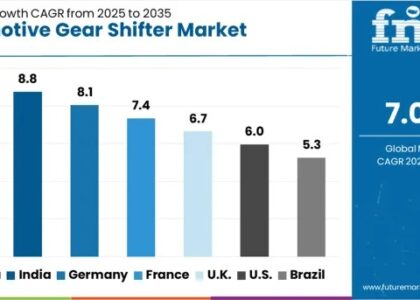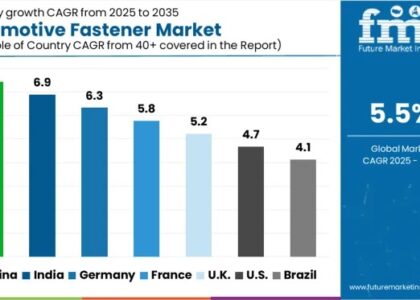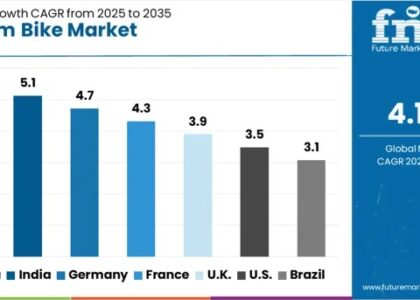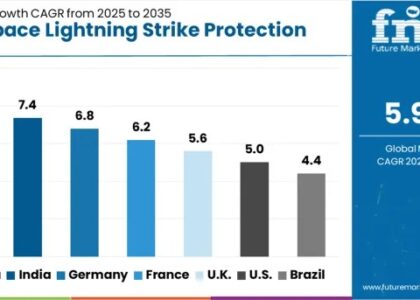
The oncology apoptosis modulators market, valued at USD 3.9 billion in 2022, is poised for significant growth, with projections indicating a robust compound annual growth rate (CAGR) of 11.1%. By 2032, the market is expected to reach a remarkable USD 8.4 billion. This growth is being propelled by the increasing demand for advanced cancer treatments and the ongoing research into novel therapies targeting the regulation of apoptosis in cancer cells.
Apoptosis, a natural process of programmed cell death, plays a crucial role in maintaining healthy cellular balance by eliminating abnormal or damaged cells. In the context of cancer, however, this process is often disrupted. Cancer cells may evade apoptosis, leading to tumor cell survival, disease progression, and resistance to chemotherapy. This has made targeting apoptosis modulators an attractive strategy for developing innovative cancer therapies.
A key factor contributing to this disruption is the overexpression of Inhibitor of Apoptosis (IAP) proteins. These proteins are frequently upregulated in various types of cancer, promoting tumor cell survival and contributing to chemotherapy resistance. Understanding and manipulating the molecular pathways involved in apoptosis is crucial for developing treatments that can help overcome these challenges, thereby improving patient outcomes.
The oncology apoptosis modulators market is benefitting from continued advancements in the field of cancer research, as well as the development of targeted therapies aimed at restoring apoptosis in cancer cells. As the understanding of apoptosis and its role in cancer evolves, the market for apoptosis modulators is set to expand, offering hope for more effective cancer treatments.
Oncology Apoptosis Market Overview: Restraints and Opportunities:
Restraints:
- High Development Costs and Time: The development of apoptosis-targeting therapies involves complex, time-consuming, and expensive research. The long clinical trial periods and high failure rates in oncology drug development pose significant financial and operational challenges for both large pharmaceutical companies and smaller biotech firms.
- Regulatory Challenges: Due to the novel nature of many apoptosis-related therapies, regulatory approval processes can be lengthy and challenging. Variations in approval standards between regions can delay market entry, restricting the growth of emerging therapies.
- Limited Patient Access: Despite advancements, the cost of advanced cancer therapies targeting apoptosis remains high. This can limit patient access to treatment, particularly in emerging economies or underserved populations, slowing overall market penetration.
- Resistance Mechanisms: Some cancers may develop resistance to apoptosis-based therapies over time, reducing their long-term effectiveness. Overcoming this resistance is an ongoing research challenge.
Rising Demand for Market Data: Our Full Report Offers Deep Insights and Trend Analysis!
Opportunities:
- Advancements in Precision Medicine: The growing trend toward personalized cancer treatments presents a key opportunity. Apoptosis-based therapies can be integrated into precision medicine approaches, allowing for treatments tailored to the genetic profile of individual tumors. This can lead to more effective therapies with fewer side effects.
- Combination Therapies: Combining apoptosis-targeting therapies with other treatment modalities, such as immunotherapies or chemotherapy, holds significant potential. These combination treatments could enhance the efficacy of apoptosis-based drugs and improve patient outcomes.
- Increasing Cancer Incidence and Demand for Targeted Treatments: As cancer rates continue to rise globally, the demand for innovative, more effective treatments grows. Apoptosis-targeting therapies, which can be less toxic and more specific than traditional chemotherapy, are poised to benefit from this increasing need.
- Expanding Research and Development: Ongoing research into the molecular mechanisms of apoptosis and cancer cell death provides opportunities for the development of novel therapies. As the understanding of these pathways deepens, new, more effective drugs are likely to emerge, further driving market growth.
In conclusion, while the oncology apoptosis market faces challenges related to cost, regulation, and resistance, it also presents substantial opportunities through technological advancements, personalized treatments, and expanding demand for more effective cancer therapies. The next few years could see significant breakthroughs that will shape the future of cancer treatment.
Oncology Apoptosis Modulators Market: Key Players
Some of the major companies contributing to global oncology apoptosis modulators marketare Chroma Therapeutics Ltd, Cancer Research Technology among others.
Oncology Apoptosis Modulators Market: Segmentation
Based on treatment type, oncology apoptosis modulators market is segmented as follows:
- Apoptotic pathways
- Extrinsic pathway
- Intrinsic pathway
- The perforin/granzyme pathway
- Execution pathway
About Future Market Insights (FMI)
Future Market Insights, Inc. (ESOMAR certified, recipient of the Stevie Award, and a member of the Greater New York Chamber of Commerce) offers profound insights into the driving factors that are boosting demand in the market. FMI stands as the leading global provider of market intelligence, advisory services, consulting, and events for the Packaging, Food and Beverage, Consumer Technology, Healthcare, Industrial, and Chemicals markets. With a vast team of over 400 analysts worldwide, FMI provides global, regional, and local expertise on diverse domains and industry trends across more than 110 countries.
Contact Us:
Future Market Insights Inc.
Christiana Corporate, 200 Continental Drive,
Suite 401, Newark, Delaware – 19713, USA
T: +1-347-918-3531
For Sales Enquiries: sales@futuremarketinsights.com
Website: https://www.futuremarketinsights.com
LinkedIn| Twitter| Blogs | YouTube





